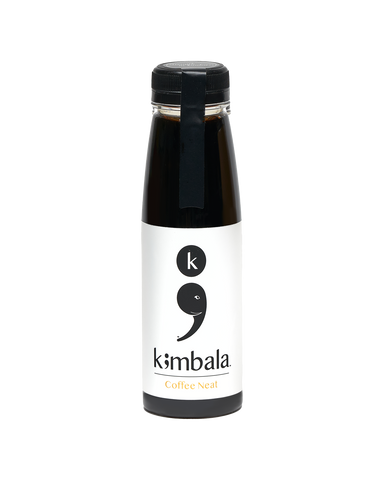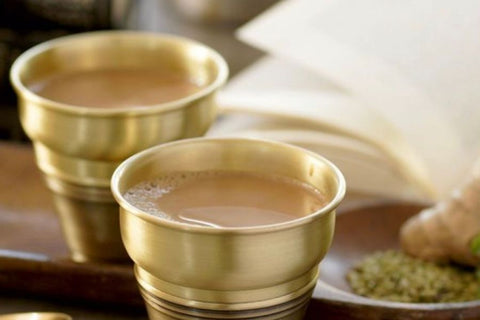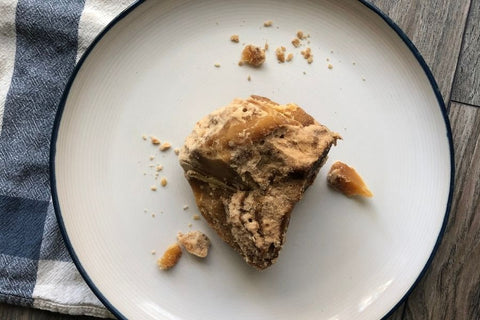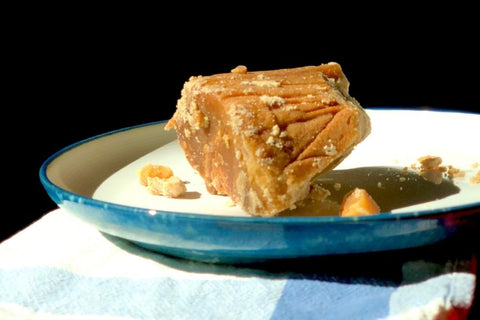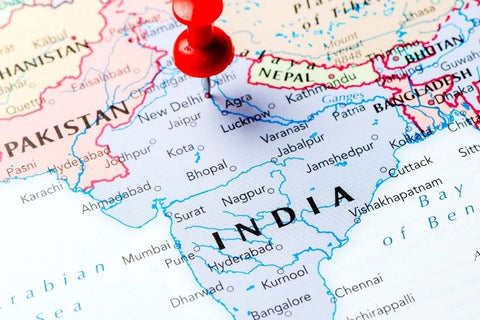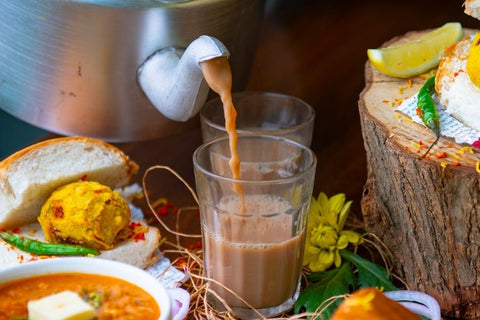Tags:
Jaggery
Jaggery benefits
Jaggery sugar
Jaggery: an unrefined sugar also known as ‘gur’ in India, the sugar of choice for many dishes and desserts around the world, and the sweetener of choice for Kimbala products. Jaggery is native to India but is readily available here in the United States. It has a beautiful brown/amber color, adds a subtle and enjoyable sweetness to your food and drink, and may provide a number of potential health benefits when consumed in moderation. Read on to learn more about our top 5 reasons to make space at home for jaggery.
1. Jaggery is high in nutrients and antioxidants
Jaggery is a non-centrifugal sugar, meaning the molasses is not taken out during production. As a result, all of the potassium, magnesium, sodium, calcium, iron, and antioxidants are retained in the jaggery. This is supported by research from the Journal of Food Science and Technology.
The nutrients and antioxidants jaggery brings to the table, give your food and drink with jaggery a nice boost. The nutrients found in jaggery may assist in boosting your body’s immunity, an added bonus! (note: jaggery should be consumed in moderation, as applies with any sugar)
2. Jaggery dissolves easily
Whether being used in coffee, tea or baked goods, jaggery easily dissolves. Some raw sugars can be annoying and remain in the bottom of your coffee or tea cup, also not properly sweetening your drink. Add jaggery to a cup of hot coffee and it melts naturally, adding a subtle sweetness and highlighting the existing flavors of your coffee.
If you’re looking to add jaggery to an iced coffee, melting whole pieces of jaggery in a small amount of hot water first works wonderfully, otherwise a granulated jaggery will work well for iced coffee.
3. Jaggery works wonders in baked goods
No need to change up your recipes to accommodate use of this new sugar since you can easily substitute jaggery at a 1:1 ratio to granulated sugar! Granulated jaggery will be easy to work with and the block form of jaggery can also be easily shredded using a knife or grater. Jaggery does not add moisture to recipes like a maple syrup would and it also does not lose too many of its nutrients when baked at high temperatures.
4. Jaggery has a flavor profile unlike any other sugar
Jaggery is less sweet than maple syrup and has a slight caramel/molasses like flavor that is present but not overpowering. It adds the sweet you crave to beverages without taking away the true flavor of your coffee or tea. It is also the perfect addition to soups, stews, and baked goods, balancing perfectly with any ingredients it is mixed with.
5. Jaggery has a variety of potential health benefits
Jaggery has a history deep rooted in Ayurvedic medicine. The potential health benefits of jaggery have been researched and according to Registered Dietician Ariane Lang of Healthline, the following are all points to consider:- Can assist in lowering blood sugar: The body absorbs jaggery slowly, avoiding the glucose spike that accompanies consumption of refined sugars. This slow absorption can aid in decreasing your appetite and can also assist in maintaining the feeling of fullness for a longer period of time.
- Aids in blood purification and blood pressure regulation: For a plant and sugar product, a single serving may contain around 10% of required daily intake of Iron. Jaggery supports healthy blood cells and there are studies that suggest it may be more easily absorbed by the body than other sugars. The potassium and sodium levels in jaggery assist in maintaining acid levels in the body and as well as a normal blood pressure level.
- Helps digestion: Jaggery can help activate digestive enzymes in the body, helps stimulate bowel movements, and can in turn help prevent or relieve constipation. Consuming a small piece of raw jaggery after a meal can help kick start digestion. A mug of hot water with a piece of jaggery, lemon and ginger is also a great option for an after dinner digestion drink.
- Detoxes the liver: Jaggery is a natural body cleanser and aids in reducing the workload of the liver. It can help flush out harmful toxins from the body which further aids in detoxifying the liver.
Sugar is a beautiful part of many food and drinks we consume on a daily basis. The choices you make regarding the type of sugar to put in your body can be crucial for long term health and well-being.
Majority of sugars have not retained their nutrients, antioxidants after processing and do not have potential health benefits when consumed in moderation.
When making your sugar selection, keep all the above benefits in mind, consider making a positive change when it comes to sugar and welcoming jaggery into your daily life. The benefits will outweigh adjusting to the change!
Still unsure what jaggery sugar is? Learn more in our sister blog post: What is jaggery? The Full Guide to Jaggery Sugar

